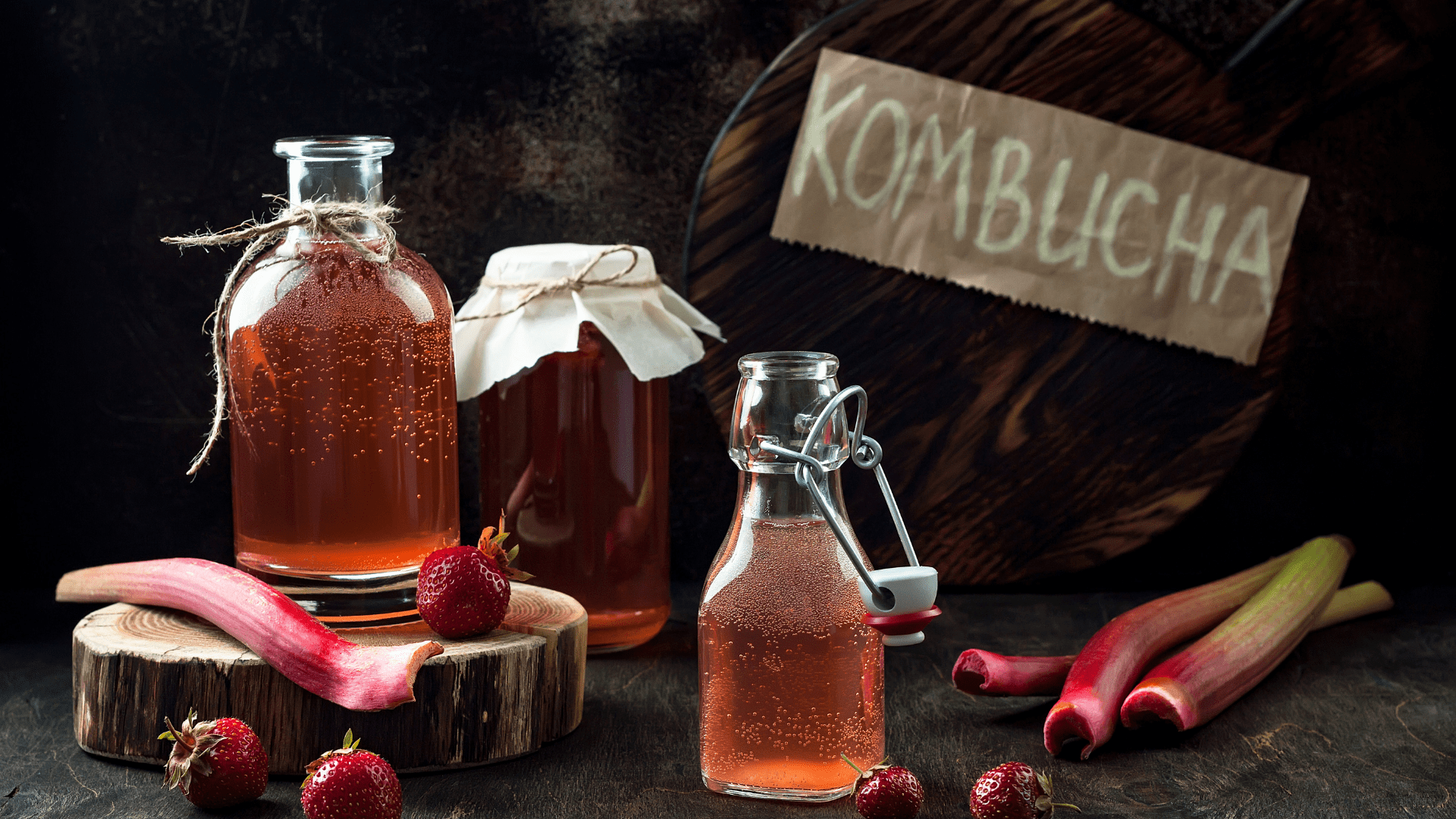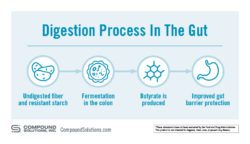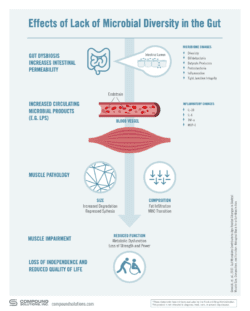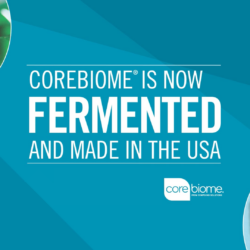What a Postbiotic Does

Postbiotics are a growing research topic for gut health experts but what does a postbiotic do? When pre- and probiotics work together in the gut, there is a fermentation process that occurs in which the outcome is postbiotic. We used to call them “waste products.” But these postbiotics aren’t a waste! Postbiotics can be made up of short-chain fatty acids, metabolites produced from the fermentation process, or proteins. These postbiotics each provide a unique benefits to your body that we are only now fully uncovering. In this brief article, we’ll discuss what postbiotics do for your health.
First, it will take years before gut health experts and scientists understand every single detail about postbiotics. New information is coming out rapidly, and questionslike “what is postbiotic butyrate and where you can find it” will continue to be asked and answered over the coming months and years. Now for the deeper questions…
What does a postbiotic do for gut permeability (aka leaky gut)?
The lining of the digestive tract needs to stay strong because it’s your last defense before your bloodstream and internal organs. That means, no inflammation or bad bacteria exiting the gut into other parts of your body. Trust us, you don’t want bad bacterial leaking into your blood stream! –The walls or lining of the digestive tract need postbiotic butyrate to thicken the mucosal lining and improve gut barrier protection. Call it what you want – but if your gut lining is weak, your health is weak. There is arguably no greater urgency to your health than your gut lining and postbiotic butyrate that supports it. How do you get postbiotic butyrate? By eating vegetables, and by supplementing with patented CoreBiome tributyrin, a unique and better form of butyrate. Bottom line: postbiotics can help here. 
What does a postbiotic do for immune health?
Science nutshell time: postbiotic butyrate is like the air traffic controller at a really busy airport. It’s detecting where help is needed throughout the body and sending in cytokine immune reinforcements to quell the inflammation. In other words, postbiotic butyrate is helping regulate inflammation and immune function in the gut. Approximately 70% of our immune cells reside in our gut, and postbiotics conduct something like a network of cytokines like an “immune orchestra.” This means that your body has soldiers at-the-ready when they need to fight off illness, and those primarily reside in the gut. So our first line of defense isn’t an immune “boost” from something like Vitamin C. The first line of defense is immune “support” in the gut—from postbiotic butyrate. For example, patented CoreBiome tributyrin, a unique and bioavailable butyrate. Postbiotics can improve our immune response. More postbiotics means a bigger, stronger army.
Postbiotics may improve a healthy inflammatory response
Gut inflammation is a big word to describe what happens in inflammatory bowel disease (IBS). It is literally when the intestines become inflamed or sore accompanied by abdominal pain, cramping, or diarrhea. Postbiotics may help by lowering gut inflammation. The ‘how’ is not entirely understood, but there is enough understanding to know that pre-, pro-, and postbiotics all work together in managing and balancing the gut microflora (that is, good bacteria and bad bacteria) in the gut as well as eliminate dead cells from the gut lining while helping to add to good, new cells. With the gut lining strong and the gut harmonized on a consistent basis, your gut and your body benefits.
What happens to your body when you start taking postbiotics?
While we don’t have a ton of bullet points here like glowing skin, clearer mind, better sleep, better sex, more money, faster cars… we do know this to be true: gut health is the FOUNDATION of human health. Here are a few bullet points we do have:
Postbiotic butyrate (CoreBiome) helps support:
- Digestive health
- Immune health
- Balanced gut flora
- Intestinal walls
- Regularity
- Normal inflammatory response in the GI tract
With what we already know about the benefits of pre- and probiotics producing postbiotics, it’s obvious the postbiotic revolution is here to stay. With gut health as the source of human health, the myriad of gut benefits range from immunity and brain health, to heart and skin (beauty-from-within). Postbiotics can help balance the gut flora and may extend the benefits of improved gut health weeks beyond temporal, transient probiotics.
Is a butyrate a postbiotic?
Yes. Here’s a fast breakdown: at the end of the digestion and fermentation process, your body will produce “waste” byproducts. . These include cells, peptides, proteins, and short-chain fatty acids. The short chain acids are acetate, propionate and butyrate. Ding. Ding. Ding! Postbiotic butyrate, and specifically the unique, bioavailable and patented CoreBiome tributyrin, is the one we want. That’s the #1 gut barrier protector that data show confers the most benefits on human health. So, yes, butyrate is a postbiotic. And interestingly, other postbiotics may help produce butyrate, as well!
Summary
What a time to be a cell. The human body is working hard at producing postbiotics to help your gut health reach full gut microflora balance potential. It can’t do it alone. Getting more postbiotics into (and out of) your body is crucial to reach optimal health. In order to do this, it’s high time we eat more vegetable fiber (prebiotics). If you cannot do that, (95% of Americans can’t) we encourage you to get more postbiotics through supplements like CoreBiome®. Postbiotic CoreBiome is the foundation of gut health and where we are in our journey to real gut health.

This is what a lack of Microbial diversity in the gut looks like.
Where to find CoreBiome® online or in your local vitamin shop
Interested in learning more about postbiotics? We’ve got you totally covered. Read more here and stay informed and vigilant when it comes to your gut health. Want to use CoreBiome®? Contact us now.





